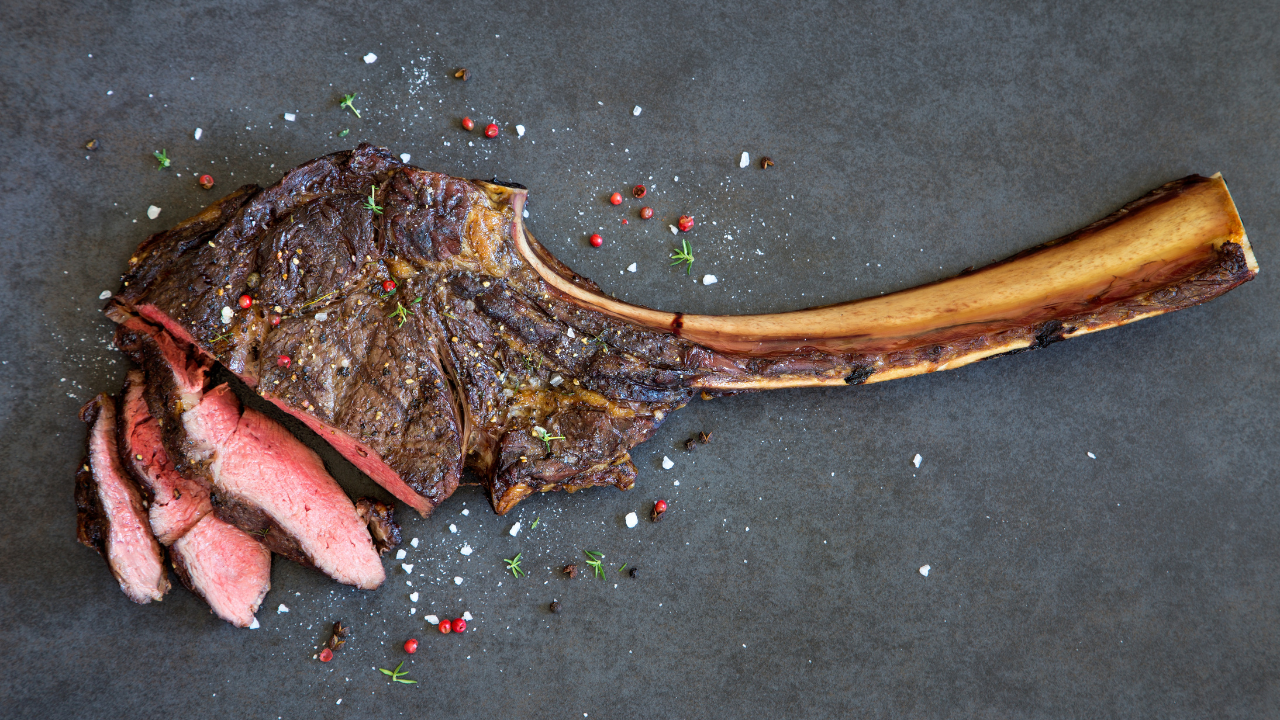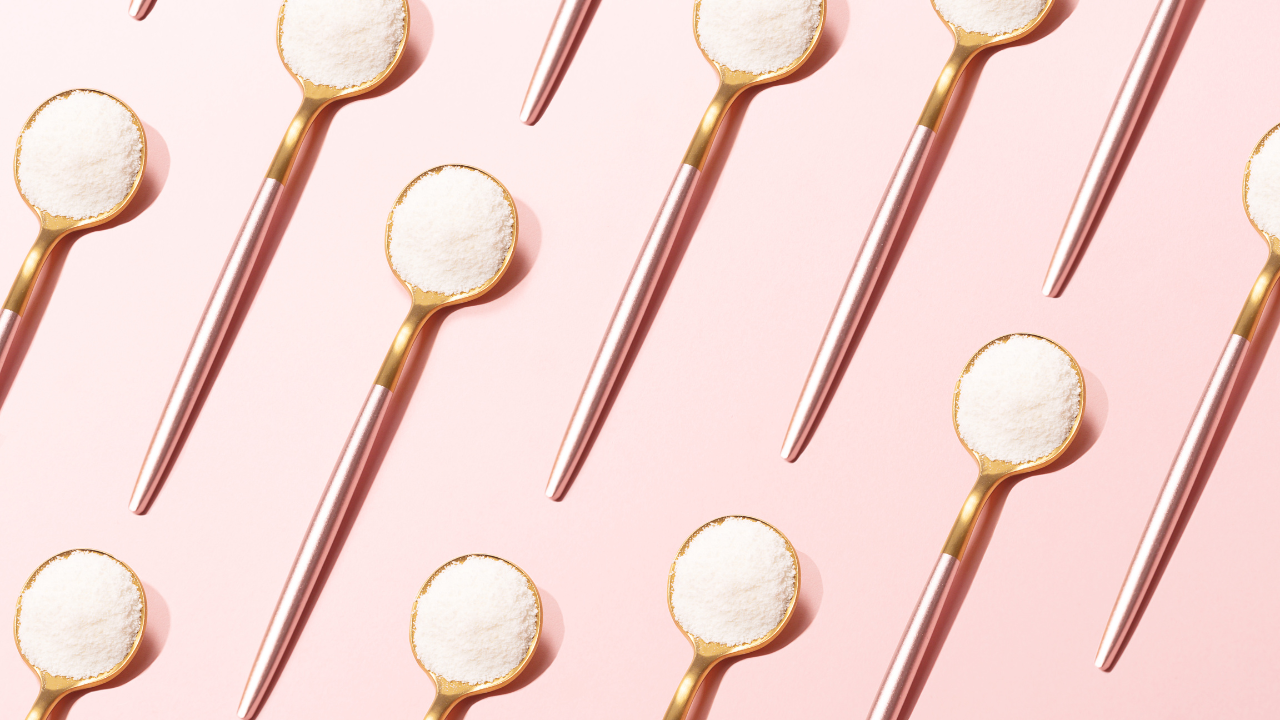Is Seaweed a Thyroid-healthy Food?

We occasionally see the term “seaweed” and “sea vegetables” used as a recommendation for thyroid patients. Seaweed is hot right now, and seaweed-containing products, powders, and even food additives are becoming more common. But before we make a mistake that could undermine our health, spike our antibodies, or lead to serious thyroid problems, let’s get a few things straight about seaweed, particularly iodine in seaweed.
In this article and episode of Thyroid-healthy Bites, we'll take a magnifying glass to seaweed as a thyroid-supportive food, looking at the good, the bad, and the ugly side of this trending superfood. We'll zero in on which types of seaweed may be safe to eat and incorporate into your well-balanced diet (depending on your individual situation), and why we shouldn’t lump all types of seaweed into the same pile.
We’ll also look at some of the other thyroid-supportive properties of seaweed, and how to decide whether or not incorporating more seaweed into your diet is right for you.
If you eat or are curious about whether or not to eat more seaweed for your thyroid health, don't miss this one!
Disclaimer: This information is for educational and inspirational purposes only. Always consult with your doctor or other qualified healthcare providers before making changes to your diet, health care, or exercise regimen.
We'll discuss:
- The pros and cons of this trending superfood.
- Iodine in seaweed and why it matters.
- Other thyroid-supportive nutrients in seaweed.
- Which types of seaweed are best and which to avoid.
- How to decide whether eating seaweed is right for you.
Podcast Links:
- Subscribe on iTunes
- Follow on Spotify
- Subscribe on YouTube
- Subscribe on Google Podcasts
- Subscribe on Amazon Music
- Listen on Stitcher
- Listen on the podcast page
Not All Seaweed Is Created Equal!
The first thing we need to understand is that using the term "seaweed" or "sea vegetables" as a blanket recommendation for Thyroid Thrivers is a bad idea. Here's why: Not all seaweed is created equal!
Its natural iodine content is the reason seaweed is so often recommended as a thyroid-supportive food. Iodine is essential to the production of thyroid hormone, and since our bodies do not make iodine, it is an essential mineral we must consume through the foods we eat. The trouble is that the thyroid is picky about how much iodine it wants, and while seaweed is one of the best dietary sources of iodine, the amount of iodine in various types of seaweed varies drastically.
We'll explore the iodine content in various seaweed varieties below, but first, let's talk about why excess iodine can be too much of a good thing.
Your Thyroid Is Picky About Iodine
The thyroid is like Goldilocks when it comes to iodine. It reacts badly to both too much iodine, and too little. Not enough iodine can make it hard for the thyroid to do its job of making thyroid hormone. Too much iodine can lead to thyroid dysfunction and aggravate the autoimmune response.
Like Goldilocks with her porridge, the thyroid needs iodine to be just right. This is why so many thyroid experts warn against taking iodine supplements. According to holistic nutritionist, Adrienne Klein, thyroid patients should not be on an iodine supplement unless directed and supervised by a qualified physician.
The NIH's recommended daily allowance for iodine in an adult is 150 mcg, with an upper limit of 1100 mcg iodine. While we do excrete much of our excess iodine through bodily fluids, especially urine, the Harvard School of Public Health warns that those of us with autoimmune thyroid disease (i.e. Hashimoto's or Grave's) or those of us with a history of iodine deficiency may be particularly sensitive to excess iodine.
One of the sources of excessive iodine consumption is certain types of seaweed. Another source is high-dose supplements.
According to holistic nutritionist, Adrienne Klein:
While some thyroid experts have promoted high doses of iodine to be helpful for thyroid patients, that is not always the case. The American Thyroid Association issued a warning about the risks of too much iodine — especially from supplement forms of iodine, potassium iodide, and kelp.
Getting high doses of iodine can cause similar symptoms as iodine deficiency, like swelling in the neck, inflammation of the thyroid gland, and goiters. Studies have shown that an increased iodine load might also contribute to decreased utilization of thyroid hormones.
Thyroid patients have increased vulnerability to excess iodine, and that could lead to the autoimmune form of hypothyroidism, Hashimoto’s. Even more concerning are studies that show that too much iodine can contribute to thyroid cancer.
Thyrotoxicosis, a life-threatening complication of having elevated iodine levels, can also occur if you take iodine supplements.
The science is clear: While iodine is critical to thyroid function, we need to be careful not to overdo it. It’s also clear that supplementing with iodine is risky, and should only be done with proper testing, and under the guidance of your trusted health care professional.
Selenium deficiency, which is common amongst thyroid patients, is another factor that can lead to issues from excess iodine.
Yet, the fact remains: Our thyroids do need enough iodine, just not too much.
Iodine in Other Foods
Like so many other aspects of thyroid-specific eating and nutrition, whether or not to incorporate more iodine-containing foods into your diet depends on YOU, the individual.
Some of us in the hypothyroid camp find that incorporating a moderate amount of iodine-containing foods into our diets helps support thyroid function and makes us feel better. Some of us in the autoimmune hypothyroid (Hashimoto’s) or hyperthyroid (Graves’ Disease) camp find that iodine is overly-stimulating, and feel better on a low iodine diet.
Also, our diets vary from person to person. Maybe you don’t use iodized salt, eat processed food, or consume seafood regularly. Maybe you live on the coast and consume loads of iodine-containing foods regularly. Several factors come into play in regard to our iodine consumption, which can vary widely depending on where and how we live.
Whether or not incorporating more iodine into your diet is right for you depends on you and your unique circumstances, and is best discussed with your trusted nutritionist or doctor.
Some iodine-containing foods include:
Eggs (24 mcg)
Tuna (17 mcg)
Turkey (34 mcg per 3 oz)
Shrimp (35 mcg per 3 oz)
Cod (99 mcg)
Prunes (13 mcg per 5 prunes)
Cranberries (400 mcg per 4 oz)
Skin-on potatoes (60 mcg per medium potato)
Lima beans (16 mcg per 1 cup cooked)
Bananas (3 mcg)
Green peas (6 mcg per 1 cup cooked)
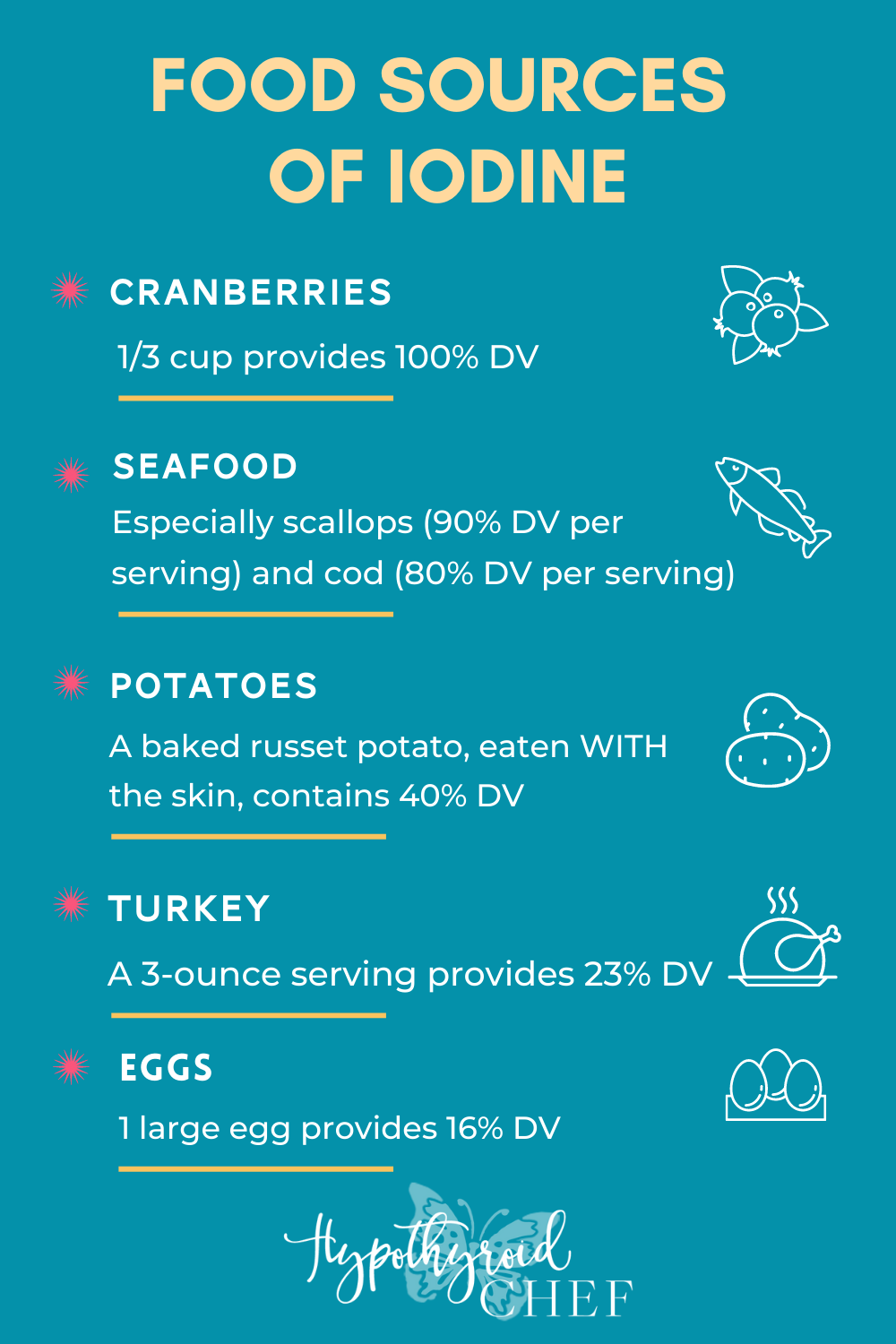
Iodine in Seaweed
Seaweed is one of the most commonly recommended food sources of iodine, and one of the most common foods recommended for thyroid patients. BUT, there are important details to consider in regards to seaweed.
While seaweed, in general, does contain iodine, the amount varies widely among types of seaweed; so much so, that we can put our health at risk if we don’t understand the difference between these apples-to-oranges varieties.
Keep in mind: The amount of iodine in foods varies significantly depending on growing factors like the mineral content of the soil, as well as iodine-containing fertilizers. Also, the amount of iodine in seaweed can vary significantly depending on where it’s grown.
There are several varieties of edible seaweed, but we’re going to focus on a few of the most commonly used and widely available types:
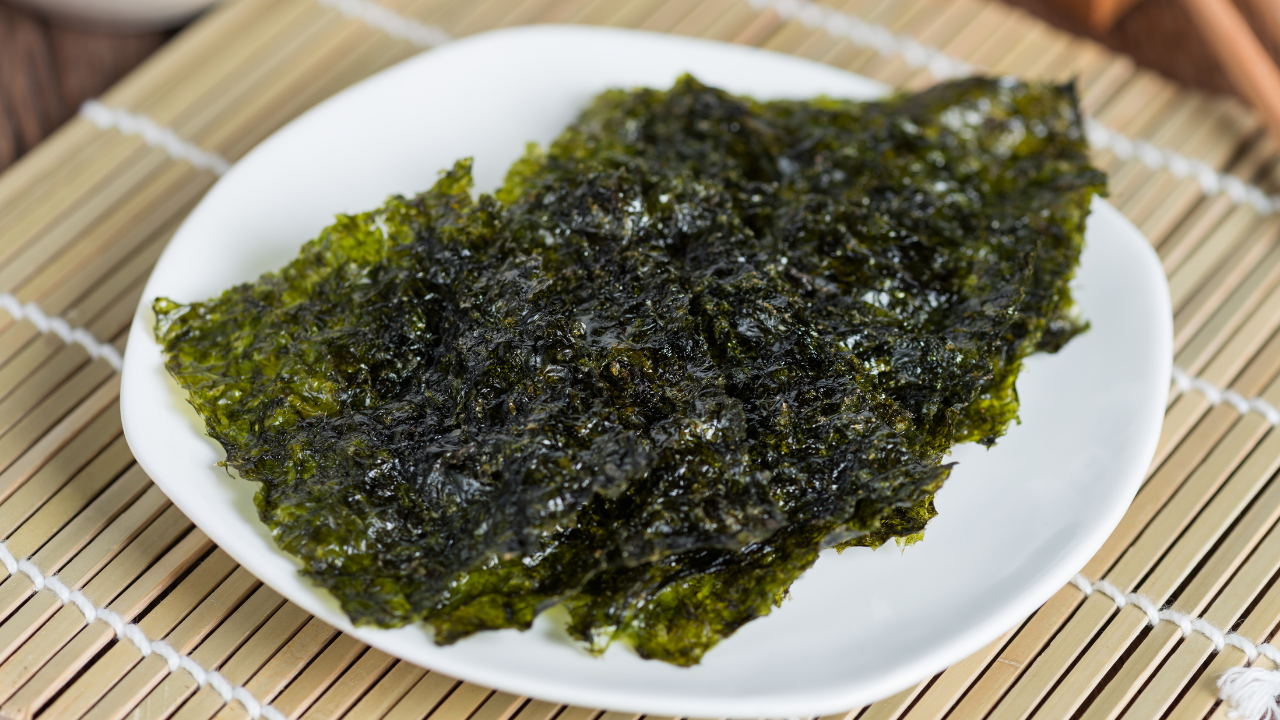
Nori:
These are the dried, papery, seaweed sheets that are used to wrap your favorite sushi roll. Also, those dried “Seaweed Snacks”? Same stuff.
1 sushi-size sheet of nori contains approximately 24 mcg of iodine, or 16% DV.
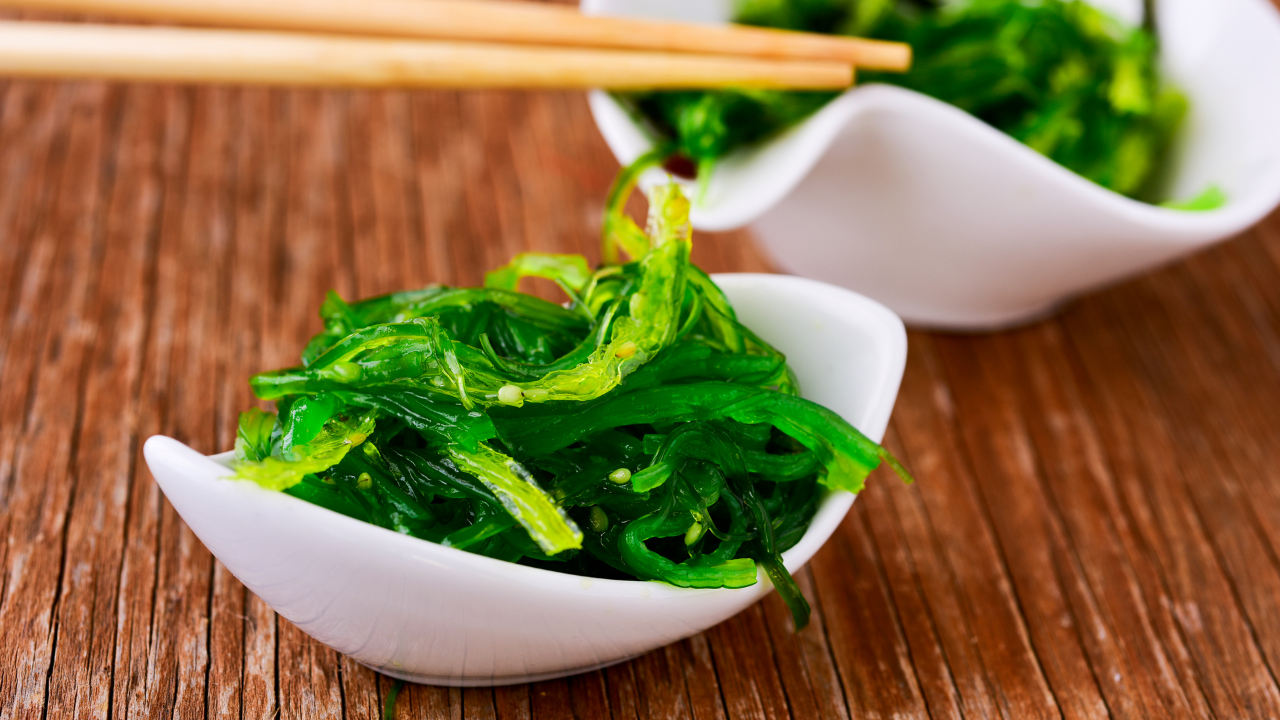
Wakame:
When you order the seaweed salad from your favorite sushi bar, wakame is typically what you get. It’s also usually what’s floating around in your bowl of miso soup.
We typically eat bigger portions of wakame, and therefore get a significantly higher amount of iodine, at 840 mcg per 1/4 cup serving, or 560% DV.
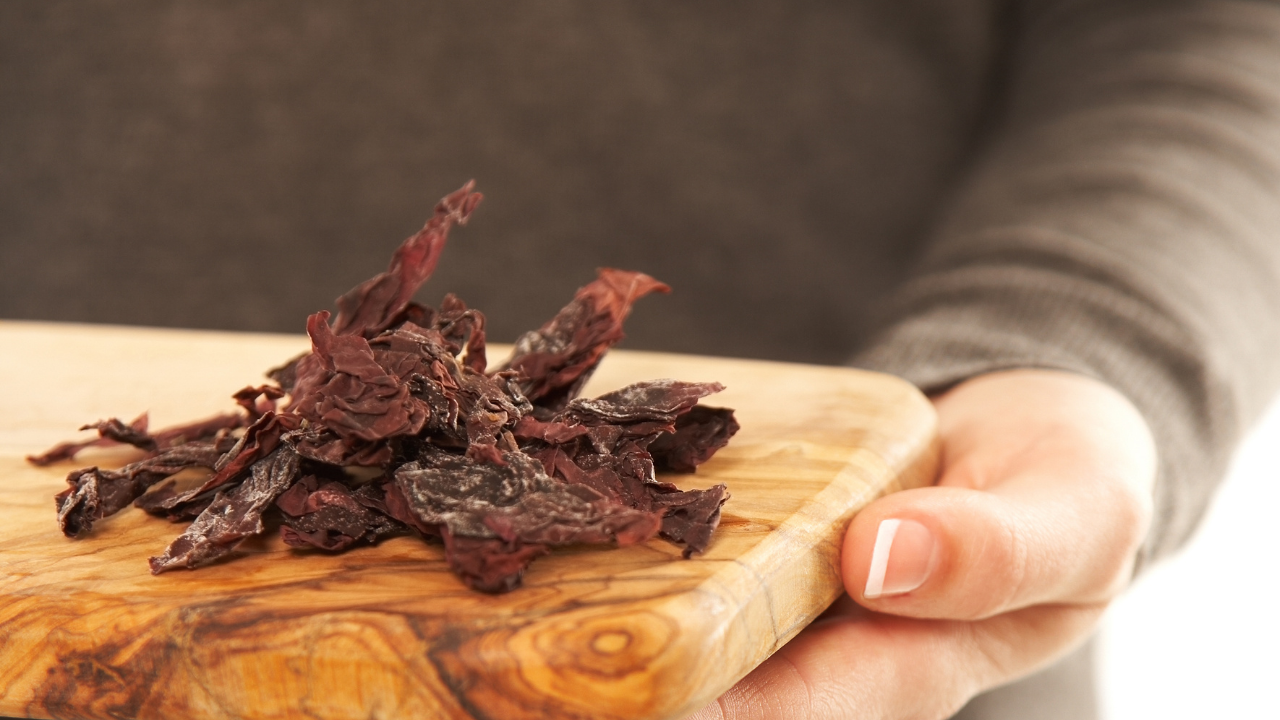
Atlantic Dulse:
(Rhymes with “pulse.”) Dulse is a leafy red variety of seaweed that is available fresh, dried, or in flakes. Gourmands treasure its umami flavor that many say is reminiscent of bacon.
1 gram (about 1/2 teaspoon) of dried dulse contains 150 – 300 mcg of iodine or 100% – 200% DV.
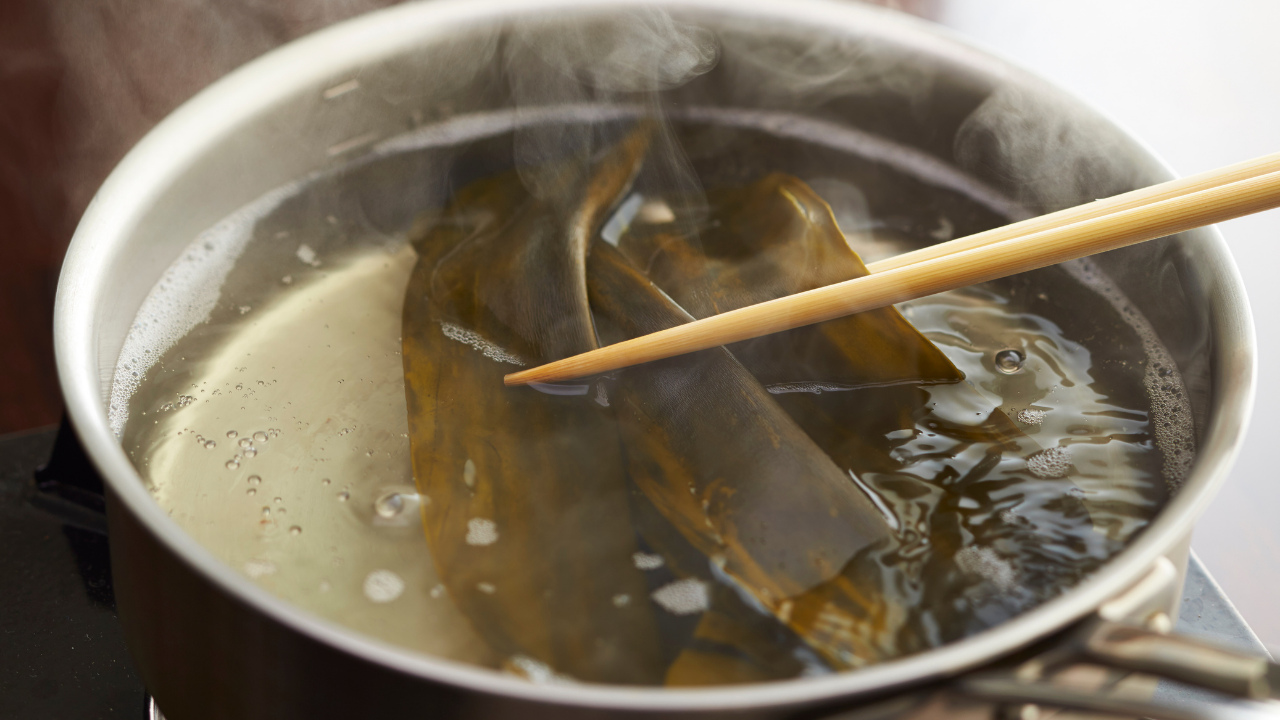
Kelp, aka Kombu:
This is the stuff that grows in vast ocean forests. Dried kelp leaves are sometimes used in Japanese cooking to flavor soup stocks (like dashi broth), before being discarded. It’s not considered safe to eat in the same way as other types of seaweed due to its extremely high iodine content.
Just 1 gram (about half a teaspoon) of kelp contains 2,984 mcg of iodine. That’s 20x the recommended daily intake, nearly 3x the safe upper limit, and 2000% DV in a teeny-tiny amount.
The Takeaway: Seaweed can be a great dietary source of thyroid-supportive iodine, but before you go adding a big scoop of kelp powder to your smoothie, remember…not all seaweed is created equal.
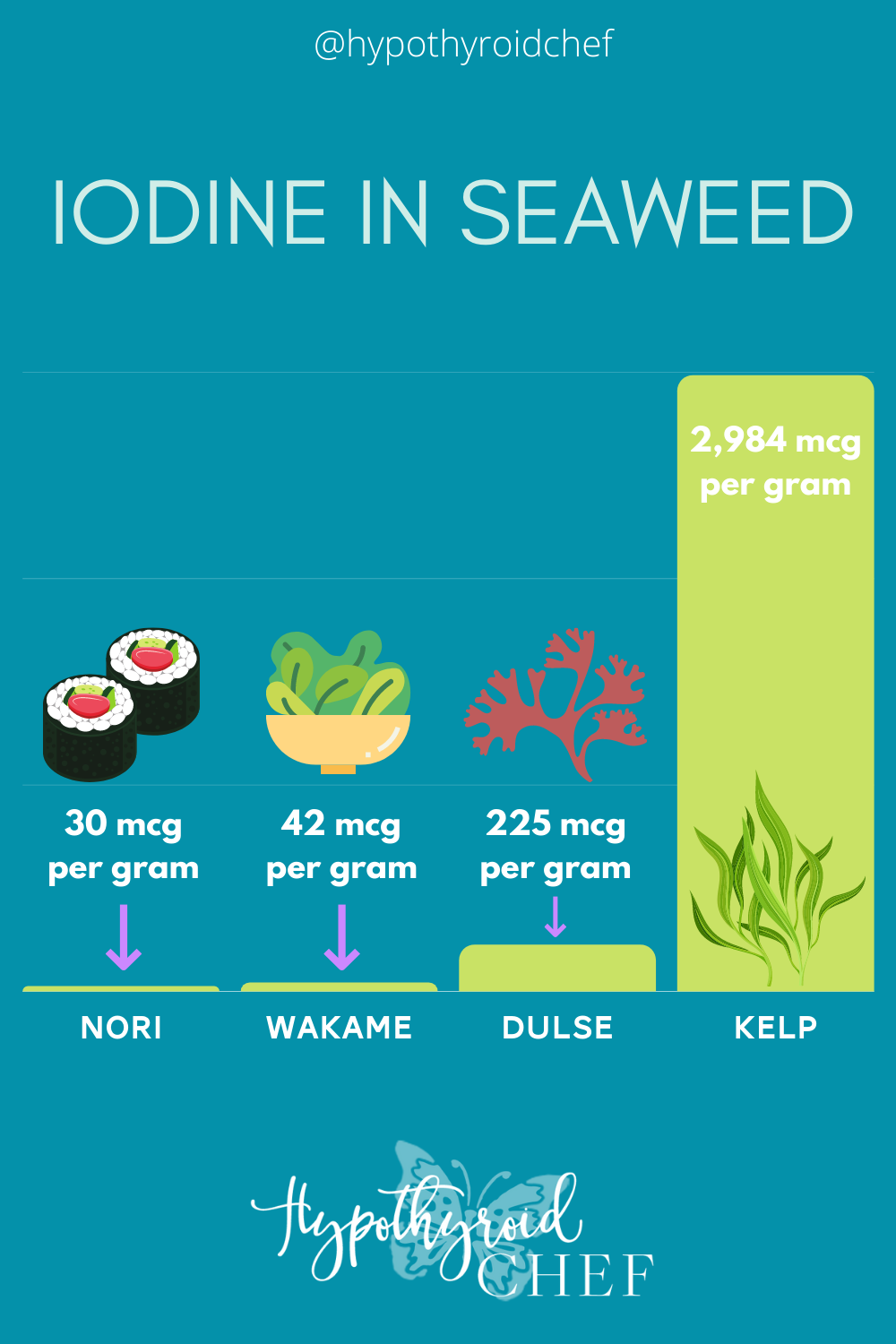
Other Good Reasons to Eat the Right Kinds of Seaweed
The thyroid-healthy properties of seaweed go far beyond its iodine content. In addition to iodine, some of the other key thyroid-supporting nutrients found in various types of seaweed include tyrosine, potassium, iron, magnesium, zinc, selenium, and B vitamins. Seaweed also contains some rare anti-inflammatory compounds, anti-cancer properties, can help balance our blood sugar, and is highly supportive of our gut health.
While some information (and misinformation) has spread online regarding things like heavy metals in seaweed, or radiation in seaweed caused by the Fukushima disaster, famous food researcher, Dr. Sarah Ballantyne, Ph.D. (aka Paleo Mom) did a deep dive on this topic. Ultimately, her professional opinion is that the right kinds of seaweed are still a safe and amazing food for our health.
One of the primary health benefits of seaweeds is that they contain loads of micronutrients, including antioxidants, unique polyphenols, unique dietary fibers, and several trace minerals that are hard to get from other foods.
It’s easy to see why seaweed so often takes the nutritional spotlight, and why many of us benefit from mindful consumption of it-- myself included.
To Make: Furikake Japanese Seaweed Shake
Bottom Line:
Because the thyroid needs adequate iodine to function properly, moderate amounts of nori, wakame, and even dulse seaweed can be part of a nutrient-dense, thyroid-healthy diet (taking your other bio-individual factors into consideration).
When it comes to seaweed consumption, it’s important to keep in mind that kelp contains dangerously high levels of iodine. That’s why the term “seaweed” or “sea vegetables” shouldn’t really be used as a blanket recommendation for thyroid patients, without clarifying the vast difference between safer choices like nori, wakame, and dulse, and potentially dangerous kelp.
I hope this has informed and empowered you to make smart, safe, and thyroid-healthy decisions around seaweed consumption. Knowing the details and variances between nori, wakame, dulse, and kelp will enable you to do just that.
Happy thriving, and enjoy the episode!

P.S. Need more help and support? Book a coaching call with me to discuss your current health challenges and goals.
Subscribe to my free newsletter for fresh recipes & lifestyle tips, delivered weekly, and receive a free gift!
By submitting this form, you agree to receive ongoing updates from Hypothyroid Chef





